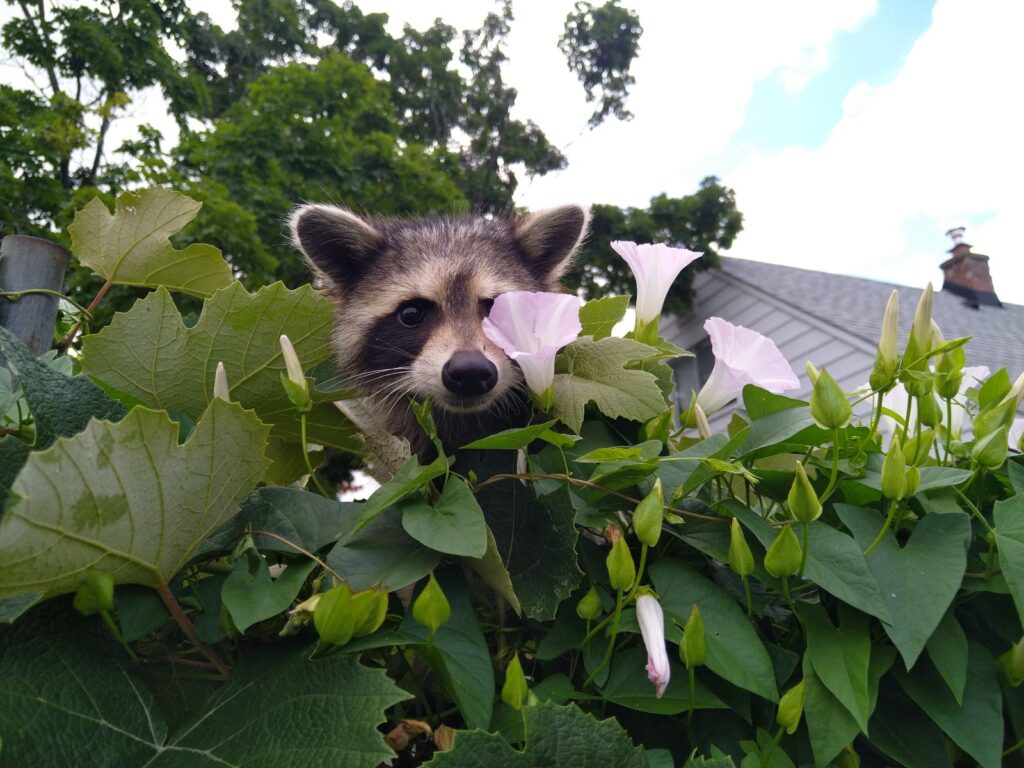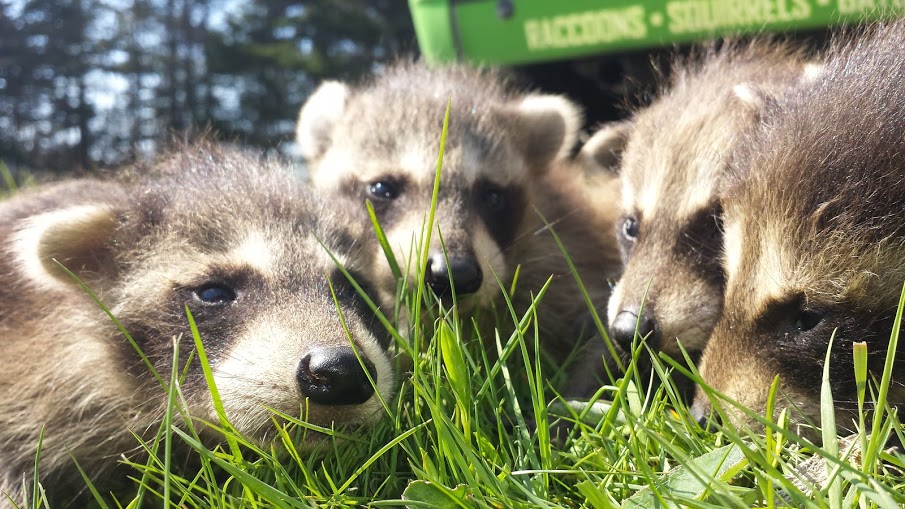As pet owners, we love our furry friends and want to protect them from any harm. However, sometimes unexpected dangers are lurking in our backyards. One potential threat to our pets is the raccoon. These curious mammals can cause havoc in our gardens and even pose a risk to our pups and kitties. With the increasing population of raccoons, it’s important to take preventative measures to keep your pets safe.
In this blog article, we’ll explore the topic of raccoons and their potential threat to our furry friends, providing insights on how to get rid of raccoons and when to seek raccoon removal in Coquitlam. Keep reading to learn more about why it’s crucial to take steps to protect your pets from these creatures.
Understanding Raccoon Behaviour
Raccoons, often characterized by their distinctive mask-like facial markings and striped tails, are primarily nocturnal creatures. Blessed with nimble hands and a curious nature, they can be found exploring human territories in search of food and shelter.
Unlike some wildlife that tends to shy away from humans, raccoons seem to have adapted well to urban environments. They are opportunistic feeders – making our backyards, garbage cans, and pet food bowls a tempting buffet for them. But this foraging behaviour can lead to unsettling encounters between our pets and these wild animals.
Why Do Raccoons Confront Pets?
Though not naturally aggressive, raccoons can be defensive when they feel threatened or cornered. This defensive behaviour is one reason for unpleasant interactions. Your pet’s curious nature can lead them to a raccoon, prompting the scared creature to retaliate. Moreover, if a raccoon discovers a regular food source in your home, it may become territorial and display aggression to deter any perceived threats, including your beloved pets.
Protective Raccoon Mothers
During the breeding season, which typically occurs between March and June, a mother raccoon might choose your backyard or attic as a safe place to give birth and raise her kits. Such females are known to be fiercely protective of their young. If they perceive a pet as a potential danger to their offspring, they won’t hesitate to defend.
By understanding raccoon behaviour, you can take critical steps to prevent conflict between these wild animals and your pets.
Are Raccoons Dangerous to Pets?
Yes, raccoons can indeed be dangerous to pets. While we don’t want to exaggerate the risk, it’s true that they have the potential to seriously harm a pet. Raccoons carry diseases such as rabies, which can pose a significant threat to the health of your pets should there be any physical confrontation. Rabies is a viral disease that can be fatal if not treated promptly. Therefore, it’s crucial to ensure your pets are up-to-date with their rabies shots.
Another potential health risk is parasites like roundworms. Baylisascaris procyonis, a species of roundworm found in raccoon feces, can infect pets upon ingestion and cause serious health issues such as blindness or even death. The spores from the roundworm eggs can also become airborne and be inhaled by humans or pets.
In addition to these health risks, raccoons are considerably powerful for their size. They have sharp claws and teeth and can mount a formidable defence if they feel cornered or threatened. Smaller pets, in particular, can suffer serious injuries if a confrontation ensues.
Preventing Raccoon-Pet Encounters
To prevent pets from coming into contact with raccoons, it’s crucial to employ an integrated approach that includes securing potential food sources, making your yard less appealing, and educating your family about the dangers.
Here are some measures you can take:
- Feed your pets indoors, or if you do feed them outdoors, ensure to remove any leftover food immediately to avoid attracting wildlife.
- Keep lids on trash cans secure, or store trash cans indoors or in secure areas where wildlife can’t get to them.
- Regularly clean up fallen fruits, acorns, or birdseed. These can attract wildlife to your yard.
- Fence off garden areas particularly ones where you grow fruits, vegetables, or flowers that wildlife finds tempting.
Despite these precautions, interactions with raccoons can still occur. When they do, it’s best to involve experts like us at Skedaddle. Our humane wildlife control methods can effectively remove them from your property and help prevent their return.
Responding to an Encounter
If your pet has a run-in with a raccoon, avoid touching your pet until the situation is under control. Call a vet if injuries are apparent and clean up the confrontation area wearing gloves to prevent the spread of roundworms or other parasites. If the raccoon has taken shelter in your home or property following the encounter, reach out to Skedaddle immediately for professional removal services. Acting promptly in these situations can help keep your pets, family, and local wildlife safe.

Effective Strategies to Deter Raccoons
While prevention is the first step towards keeping your pets safe from raccoons, there are also ways to deter these creatures from frequenting your property. Discouraging them can significantly reduce the chances of undesirable encounters that may lead to personal injury or property damage.
Raccoon Repellents
Humanely discouraging raccoons from your property can involve the use of repellents. There are various commercially available products that can help make your yard less appealing. Some of these include olfactory repellents, which emit a smell that raccoons find bothersome, and taste deterrents, which make the food within your property unpalatable.
However, it’s essential to note that repellents may not always provide a long-term solution as some animals may eventually grow accustomed to the substances used. Always use repellents in conjunction with other strategies and be sure to comply with local regulations.
Sealing Entry Points
Raccoons can be incredibly ingenious when it comes to finding ways into your home. They can exploit weak points in your house structure to gain access to a warm, quiet spot for nesting. Therefore, identifying and sealing these potential access points can play a crucial role in denying wildlife unwelcome entry into your home.
This can involve tasks such as patching up holes in your exterior walls, ensuring that your roof and eaves are in good repair, and even installing chimney caps or vent covers. Remember, a small space or crack can be enough for an agile raccoon to squeeze through.
Landscape Management
Simple changes to your house’s landscaping can also deter wildlife. High grass, brush piles, and excessive vegetation provide excellent hiding spaces for raccoons. By maintaining a neat and tidy yard, you can reduce the chance of raccoons being comfortable in the vicinity.
Additionally, clearing away potential food sources such as excess fruit from fruit trees or available bird feed can help make your yard less appealing to these food-driven creatures.
Call Skedaddle for Raccoon Removal in Coquitlam
At Skedaddle Humane Wildlife Control in Coquitlam, we have a team of professional wildlife control technicians skilled in managing problems caused by raccoons and other local wildlife. Our ethos is firmly grounded in the humane treatment of animals and resolving human-wildlife conflicts in a safe, effective manner.
We offer a range of services tailored to handling raccoon-related problems. As well as safely removing them from your property, we are experts at creating a long-term, sustainable solution to prevent future invasions. We’ll outline a step-by-step plan which includes thorough inspection, raccoon removal, cleaning, and preventative measures.
Ready to protect your pets and secure your home? Trust the expertise of Skedaddle! Don’t wait for the problem to escalate. Call us today to schedule a thorough inspection and get started on your comprehensive control plan. Harmony between wildlife and your home is just a call away!



